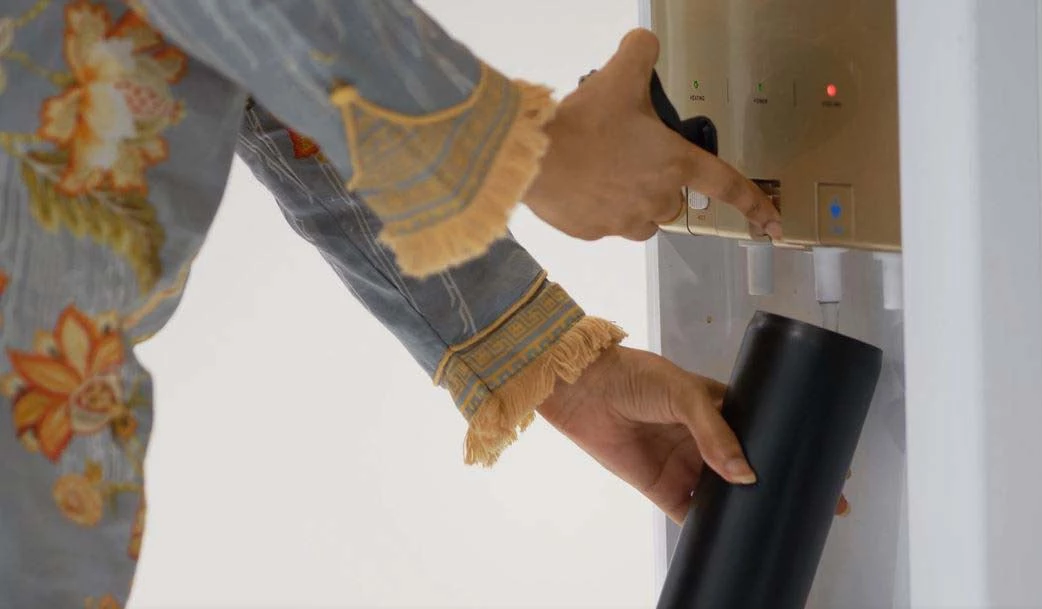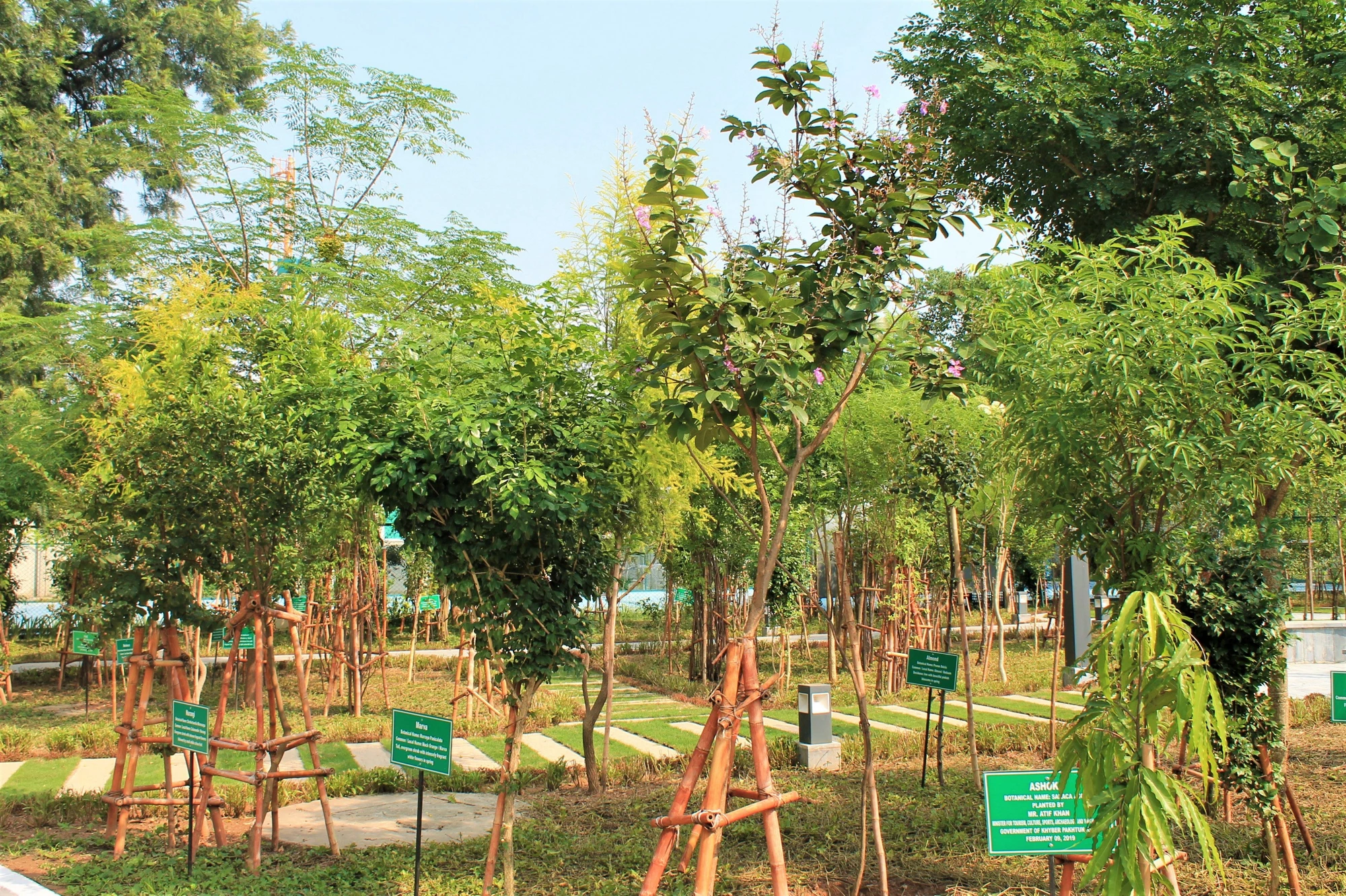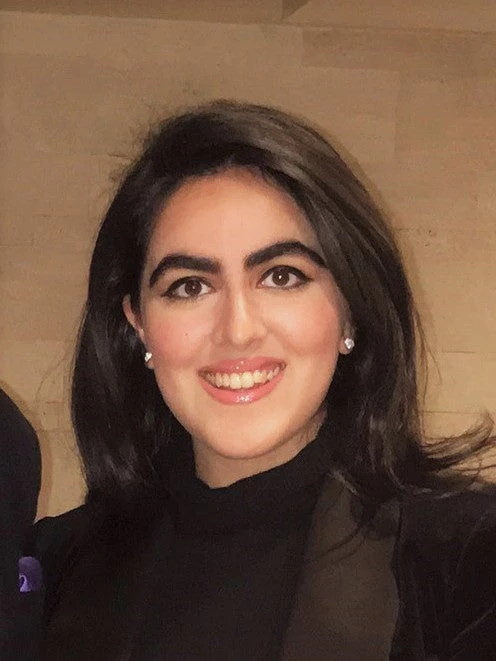 We use our own reusable bottles and flasks and refill them at the filter stations.
We use our own reusable bottles and flasks and refill them at the filter stations.
Pakistan has joined 128 countries in the fight against plastic pollution, and it started with Islamabad's pilot project banning the use of plastic bags in the capital city.
For the past year, the World Bank Islamabad campus has been free of single-use plastic.
Our newly renovated and LEED-certified (Leadership in Energy and Environmental Design) campus is designed to reflect the World Bank's commitment to addressing the challenges borne of climate change and promoting sustainability.
When moving into the new campus, our staff took part in the I-commit campaign. They committed to eliminating single-use plastic on campus and to adapt their lifestyles to be environmentally friendly as much as possible.
Rather than use plastic bottles that would end up in landfills, we also use reusable water bottles at filter stations around the office.
Each staff member was given a reusable bag for daily use, whether they used it to carry work items into the office or for shopping on the weekend.
Rather than use plastic bottles that would end up in landfills, we also use reusable water bottles at filter stations around the office.
But we realized a full charge for environmental sustainability would have to go beyond bags and bottles.
We equipped the campus with the tools to help us manage any waste produced at the office - all the waste generated from the campus is now fully recycled.
Recyclable bins are available, on all floors, that separate waste into different categories to enable recycling, and no one is provided with personal bins at their desks to avoid mixing waste.

In addition to basic recycling, we wanted to push ourselves a step further.
To recycle organic waste, we constructed a composting pit in the campus grounds where all organic waste is converted into compost.
Our Urban Forest and garden space are practically self-sufficient as they are fed and fertilized by this compost.
Whether it's a team huddle, external meeting, or even a social event, no plastic is allowed on campus. We've worked closely with vendors on campus, from the catering team to event managers, who have adapted themselves to work within this policy.
Our campus coffee shop, for example, has eliminated plastic straws and lids and even replaced plastic sandwich wrap with alternatives like wax paper.
It was a learning curve to make the campus single-use plastic-free – a mixture of the right amount of engagement from our teams and staff, the facilities to enable environmentally sustainable practice, and a good old-fashioned implemented policy.
Whether it's a team huddle, external meeting, or even a social event, no plastic is allowed on campus.
Drawing on these lessons, the World Bank in Pakistan has developed "the 3 Ps" framework.
The 3 Ps framework has helped our projects as well, as they aim to address single-use plastic pollution across sectors.
Our tourism development projects in Khyber Pakhtunkhwa and Punjab, for example, aim to engage communities and businesses and to equip tourist sites with appropriate equipment and policies for plastic waste management.
The Punjab Green Development program will be helping Punjab to limit and regulate the production and use of single-use plastic and support a province-wide awareness campaign to support this.
If the current trends continue, it is estimated that oceans will contain more plastic than fish by 2050.
Globally, 5 trillion single-use plastic bags are used worldwide every day.
Half of all plastic produced is developed to be used only once.
If the current trends continue, it is estimated that oceans will contain more plastic than fish by 2050.



Join the Conversation